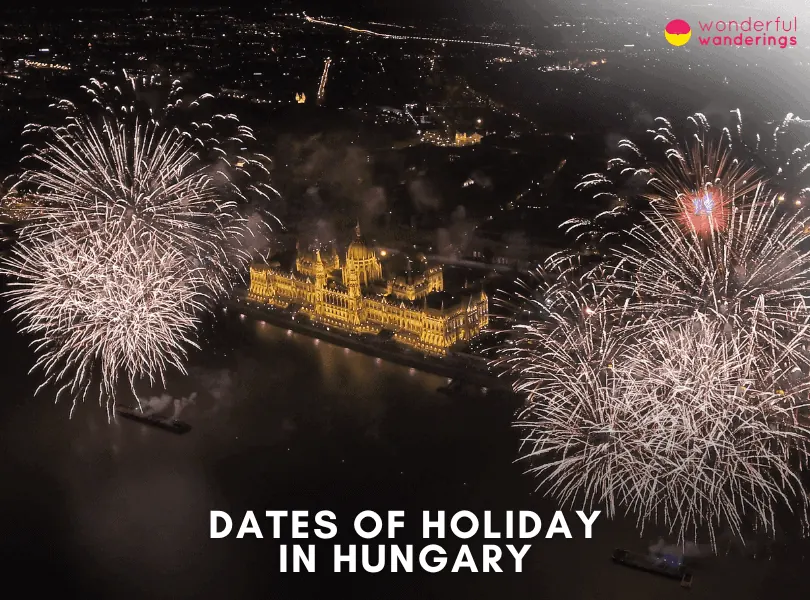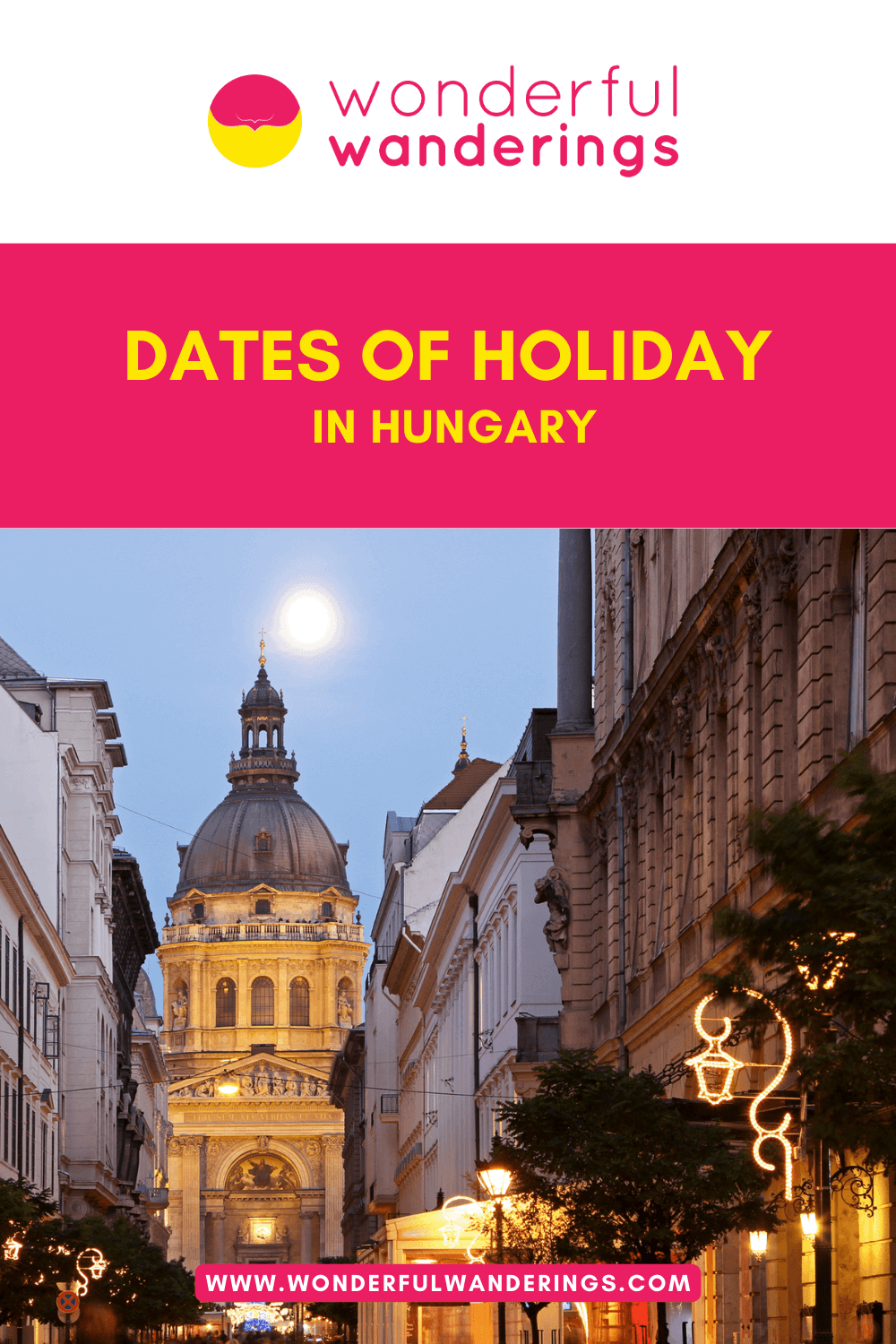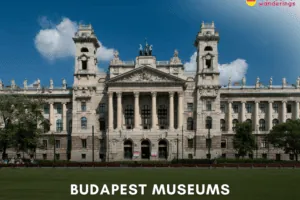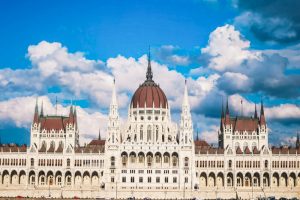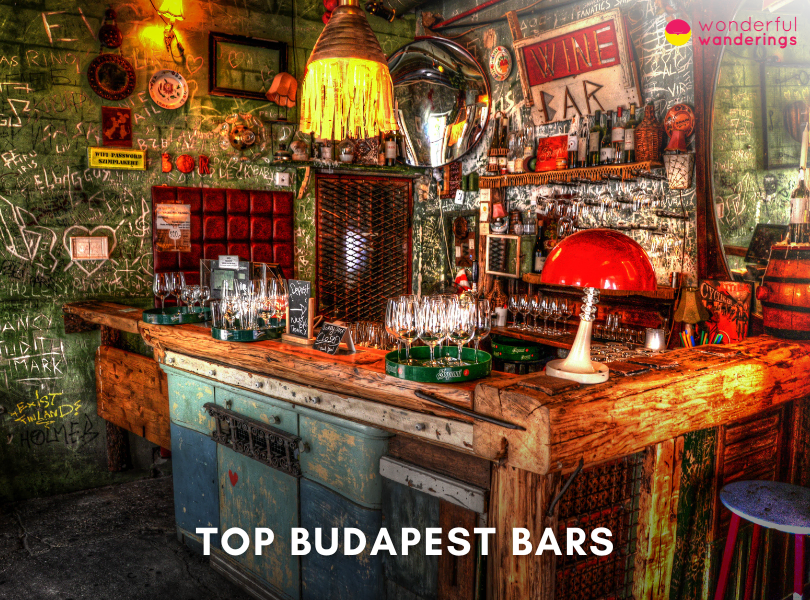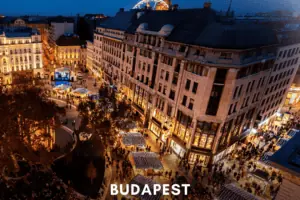Holidays in Hungary are known for their rich cultural traditions and festive celebrations. The most important holiday is Christmas, which is celebrated with great enthusiasm and joy. Families come together to decorate their homes, exchange gifts and enjoy traditional Hungarian dishes such as fish soup and stuffed cabbage. The other significant holiday is Easter, marked by religious processions, egg decorating and the famous Hungarian Easter Monday tradition of “sprinkling”, where boys playfully douse girls with water. St. Stephen's Day on August 20th commemorates the founding of the Hungarian state and is celebrated with colorful fireworks, concerts and parades. The Hungarian National Day on October 23rd pays tribute to the 1956 Hungarian Revolution with various commemorative events and ceremonies across the country.
Contents
- What are the holiday dates in Hungary?
- What are the dates of the national holidays in Hungary for 2024?
- What are the dates of the governmental holidays in Hungary for 2024?
- What are the holiday dates in Hungary that locals work?
- What are the Hungarian school holidays in 2024?
- What is the Daylight savings time?
- What are the astronomical events in Hungary in 2024?
What are the holiday dates in Hungary?
The holiday dates in Hungary are nationwide public holidays, national holidays, bank holidays, school holidays, commercial holidays and government holidays. Firstly, Nationwide public holidays are days when most businesses and institutions are closed and workers are entitled to paid leave. These holidays are based on the Constitution of Hungary and include religious and historical events, such as New Year's Day, Easter and the 1956 Revolution Memorial Day. Secondly, National holidays are days when the nation celebrates its identity and culture, such as the 1848 Revolution Memorial Day, the State Foundation Day and Labor Day. These public holidays have official ceremonies and programs, such as speeches, music and fireworks. Thirdly, Bank holidays are days when banks and financial institutions are closed, but other businesses and services may operate normally. These holidays are usually related to the banking sector, such as the end of the fiscal year, the anniversary of the Hungarian National Bank and the International Bank Holiday. Fourthly, School holidays are days when schools and educational institutions are closed, but other businesses and services may operate normally. These holidays are usually related to the academic calendar, such as the winter break, the spring break and the summer break. Some school holidays may coincide with public holidays, such as Christmas and Easter. Fifthly, Commercial holidays are days when businesses and services offer discounts, promotions and special deals to attract customers. These holidays, such as Black Friday, Cyber Monday and Valentine's Day, are usually related to the consumer market. Some commercial holidays may coincide with public holidays, such as Mother's Day and Father's Day. Lastly, Government holidays are days when government offices and agencies are closed, but other businesses and services may operate normally. These holidays are usually related to the administrative sector, such as Constitution Day, Civil Service Day and Local Government Day.
What are the dates of the national holidays in Hungary for 2024?
The table below shows the national holiday dates in Hungary for 2024.
| Date | Holiday |
| January 1 | New Year's Day |
| March 15 | 1848 Revolution Memorial Day |
| March 29 | Good Friday |
| April 1 | Easter Monday |
| May 1 | Labour Day |
| May 20 | Whit Monday |
| August 20 | Saint Stephen's Day |
| October 23 | 1956 Revolution Memorial Day |
| November 1 | All Saints' Day |
| December 25 | Christmas Day |
| December 26 | 2nd Day of Christmas |
How are the nationwide public holidays in Hungary celebrated?
Listed below are how the nationwide public holidays are celebrated in Hungary.
- New Year's Day. Hungarians celebrate New Year's Day on January 1st each year. Fireworks displays, festive gatherings and parties mark the day. Most people participate in the custom of “Dressing up”, where they visit friends and family in traditional Hungarian attire. Making New Year's resolutions and exchanging gifts to symbolize new beginnings is common.
- 1848 Revolution Memorial Day. The 1848 Revolution Memorial Day is observed on March 15th and commemorates the Hungarian Revolution of 1848. People attend commemorative ceremonies, parades and public speeches. The Hungarian flag is displayed in national red, white and green colors. Cultural events, such as concerts and exhibitions, often honor the country's history and promote national unity.
- Good Friday. Good Friday, which falls on a different date each year, is a solemn day in Hungary. It marks the crucifixion of Jesus Christ and is observed by Christians as a day of mourning and reflection. Most Hungarians attend church services and participate in processions depicting the Stations of the Cross. Some people also fast or engage in acts of charity and self-reflection.
- Easter Monday. Easter Monday is a joyful holiday celebrated following Easter Sunday. The popular tradition is “sprinkling” or “dousing” in Hungarian, where young men playfully sprinkle water on women and recite Easter poems in exchange for painted eggs or small gifts. Families often gather for festive meals that feature traditional Hungarian dishes like ham, eggs and Easter pastries. Most communities organize Easter egg hunts and other family-friendly events.
- Labour Day. Labour Day is celebrated on May 1st and honors workers' contributions. It is a public holiday and many people enjoy a day off from work. Labor unions and organizations organize parades, demonstrations and public rallies to advocate for workers' rights and social justice. Outdoor concerts, sports events and picnics are common, providing relaxation and leisure opportunities.
- Whit Monday. Whit Monday, also known as Pentecost Monday, is a Christian holiday celebrated on the day after Pentecost. Most Hungarians spend this day with family and friends, enjoying picnics and outdoor activities. It is common to attend church services and participate in religious processions. Cultural events, such as folk music and dance performances, may take place to celebrate Hungarian traditions. Some people take advantage of the long weekend to travel or engage in leisure activities.
- Saint Stephen's Day. Saint Stephen's Day, celebrated on August 20th, honors the first king of Hungary, Saint Stephen. The highlight of the day is the Budapest Fireworks Show, a spectacular display on the Danube River. Most Hungarians attend concerts and cultural events held throughout the country. Traditional ceremonies, including changing guards and flag-raising ceremonies, may occur. It is a patriotic holiday that fosters a sense of national pride and unity.
- 1956 Revolution Memorial Day. The 1956 Revolution Memorial Day commemorates the Hungarian Revolution of 1956, a pivotal event in Hungary's history. People may visit memorials and historical sites associated with the revolution. Ceremonies, speeches and exhibitions are organized to remember the brave individuals who fought for freedom. It is a time for reflection on the importance of democracy and human rights. The day serves as a reminder of the nation's resilience and the ongoing pursuit of liberty.
- All Saints' Day. All Saints' Day, observed on November 1st, is a Christian holiday dedicated to honoring all the saints. Most Hungarians visit cemeteries to pay respects to their deceased loved ones. They decorate graves with flowers, candles and wreaths, creating a solemn and peaceful atmosphere. Church services and prayers are held to remember and honor the saints. Families may gather for meals and share memories of those who have passed away.
- Christmas Day. Christmas Day, celebrated on December 25th, is a major holiday in Hungary. Families come together to exchange gifts and enjoy festive meals. Most attend midnight Mass on Christmas Eve and church services on Christmas Day. Traditional customs are observed, such as decorating Christmas trees and singing carols. The holiday is a time of joy, togetherness and celebrating the birth of Jesus Christ.
- 2nd Day of Christmas. The 2nd Day of Christmas or Boxing Day, is a nationwide public holiday in Hungary. Most Hungarians spend the day with their families, continuing the festive celebrations of Christmas. It is a common time for relaxation and leisure activities such as walking, watching movies or playing games. Some take advantage of retailers' holiday sales and discounts, especially in larger cities. Sporting events, such as football matches, may occur during this day, attracting sports lovers. In line with the tradition of Boxing Day, some individuals participate in charitable activities, donating to those in need or volunteering their time to help others.
What are the dates of the governmental holidays in Hungary for 2024?
The table below shows the governmental holiday dates in Hungary for 2024.
| Date | Holiday |
| January 1 | Constitution Day |
| June 23 | Civil Service Day |
| October 12 | Local Government Day |
How are the governmental holidays in Hungary celebrated?
Listed below are how the governmental holidays are celebrated in Hungary.
- Constitution Day. Constitution Day, celebrated on August 20th, commemorates the establishment of Hungary's constitution. It is a national holiday marked by various events and festivities. The President of Hungary delivers a speech regarding the significance of the constitution and its principles. Cultural programs, including concerts, exhibitions and theatrical performances, are organized to promote national identity and unity. Fireworks displays often occur in the evening, attracting locals and tourists alike.
- Civil Service Day. Civil Service Day, observed on September 1st, recognizes the contributions and dedication of civil servants in Hungary. Government agencies and departments may hold internal events and ceremonies to honor employees. Outstanding civil servants may receive recognition, awards or special acknowledgment. It is a day to appreciate the efforts of those who serve the public and contribute to the functioning of the government. Public awareness campaigns may also highlight the importance of civil service in society.
- Local Government Day. Local Government Day is celebrated on October 1st to recognize the role and achievements of local governments in Hungary. Local municipalities and communities organize events to engage citizens and showcase their services and initiatives. Open houses, public forums and exhibitions may be held to promote transparency and encourage citizen participation. Local government officials may deliver speeches or presentations on the accomplishments and plans of their municipalities. The day fosters community and collaboration between citizens and local government authorities.
What are the holiday dates in Hungary that locals work?
Listed below are the holiday dates in Hungary that locals work.
- Easter Sunday. Easter Sunday is a religious holiday commemorating Jesus Christ's resurrection. Easter Monday is a public holiday in Hungary, but Easter Sunday is a regular working day. Most people attend church services, family gatherings and meals on Easter Sunday. Businesses and services operate as usual and employed individuals typically work on this day.
- Mother’s Day. Mother's Day in Hungary is celebrated on the first Sunday of May. It is not a public holiday and locals work on this day. People often express their love and appreciation for their mothers by giving gift cards or spending quality time together. Restaurants and cafes may be busier as families take their mothers out for meals or treat them to special activities. Most businesses and services usually operate on Mother's Day.
- Whit Sunday. Whit Sunday, also known as Pentecost Sunday, is a Christian holiday celebrated seven weeks after Easter. Like Easter Sunday, Whit Sunday is a regular working day in Hungary. Religious services and celebrations occur on this day, emphasizing the significance of the Holy Spirit's descent. Families may gather for meals or engage in outdoor activities, enjoying the pleasant spring weather. Work and daily routines continue as usual for the majority of the population.
- Father’s Day. Father's Day in Hungary is celebrated on the third Sunday of June. Like Mother's Day, Father's Day is not a public holiday and locals typically work on this day. Families may plan special activities or surprise their fathers with gifts or outings to honor them. Restaurants, parks and recreational venues may experience increased visitors as families spend time together. Work and regular business operations continue for most individuals.
- Saint Nicholas Day. Saint Nicholas Day is celebrated on December 6th in Hungary. It is not a public holiday and people generally work on this day. Saint Nicholas Day is often associated with gift-giving to children. Families may exchange small presents or candies and children may find surprises in their shoes. Saint Nicholas is celebrated, but the local population maintains work and daily responsibilities.
- Christmas Eve. Christmas Eve, celebrated on December 24th, is a regular working day in Hungary. It is an important day in the Christmas season, but businesses and services operate as usual. Most Hungarians use this day to prepare for the Christmas celebrations, such as decorating the Christmas tree and cooking festive meals. Some individuals may leave work early to spend the evening with their families and attend church services. The majority of the population works a regular schedule on Christmas Eve.
- New Year's Eve. New Year's Eve, observed on December 31st, is also a working day in Hungary. It is a time when people gather to bid farewell to the old year and welcome the new one. Most businesses and organizations may have shortened working hours or closed earlier. Locals often make plans for celebrations, such as attending parties, fireworks displays or watching televised events. Despite the festive atmosphere, work and daily routines continue until the end of the working day.
What are the Hungarian school holidays in 2024?
Listed below are the Hungarian school holidays in 2024.
- Christmas Holidays. The Christmas holidays in Hungary usually start on December 20 and end on January 8. Students and teachers celebrate Christmas and New Year with their families and friends during this time. They also enjoy various traditions, such as decorating the Christmas tree, exchanging gifts and eating festive dishes. Some popular foods include bejgli (a pastry filled with poppy seeds or walnuts), szaloncukor (a chocolate-covered candy) and halászlé (a spicy fish soup). The Christmas holidays are a time of joy and relaxation for the school community.
- Spring Holidays. The spring holidays in Hungary usually coincide with Easter, which falls on different dates each year. The spring holidays last about a week, during which students and teachers celebrate Jesus Christ's resurrection and spring's arrival. They also participate in various customs, such as painting eggs, sprinkling water or perfume on girls and visiting relatives. Some typical foods include sonka (a ham), torma (a horseradish sauce) and kalács (a braided bread). The spring holidays are a time of renewal and gratitude for the school community.
- Summer Holidays. The summer holidays in Hungary usually start on June 16 and end on September 1. Students and teachers enjoy summer's long and warm days during this time. They often travel to different places, such as Lake Balaton, the largest lake in Central Europe or Budapest, the capital city of Hungary. They also participate in swimming, hiking, biking and camping. Some common foods include lángos (a deep-fried dough), kürtőskalács (a chimney cake) and gulyás (a stew). The summer holidays are a time of adventure and fun for the school community.
- Autumn Holidays. The autumn holidays in Hungary usually last for a week, at the end of October or the beginning of November. Students and teachers take a break from the school routine and prepare for the winter season. They also observe some important dates, such as October 23, the Memorial Day of the Hungarian uprising of 1956 and November 1, the All Saints' Day. They also enjoy the changing colors of the leaves and the harvest of fruits and vegetables. Some delicious foods include tök (a pumpkin), gesztenye (a chestnut) and lecsó (a vegetable stew). The autumn holidays are a time of reflection and transition for the school community.
What is the Daylight savings time?
Listed below are the dates that Hungary will switch to daylight saving time in 2024.
- March 26. Hungary will start daylight saving time on March 26, at 3.00 am local standard time. The clocks will be turned forward one hour to 4.00 am local daylight time, which means that sunrise and sunset will be one hour later on March 26 than the day before.
- October 29. Hungary will end daylight saving time on October 29, at 4.00 am local daylight time. The clocks will be turned backward one hour to 3.00 am local standard time, which means that sunrise and sunset will be one hour earlier on October 29 than the day before.
What are the astronomical events in Hungary in 2024?
Listed below are the astronomical events in Hungary for 2024.
- March Equinox. The March equinox is when the Sun crosses the celestial equator from south to north. This marks the beginning of spring in the Northern Hemisphere and autumn in the Southern Hemisphere. In 2024, the March equinox will occur on March 20. On this day, the length of day and night will be equal worldwide. The March equinox is also known as the vernal equinox or the spring equinox in the Northern Hemisphere.
- June Solstice. The June solstice is when the Sun reaches its highest position in the sky, as seen from the Northern Hemisphere. It marks the longest day of the year and the beginning of summer in the Northern Hemisphere, the shortest day of the year and the beginning of winter in the Southern Hemisphere. In 2024, the June solstice will occur on June 21. On this day, the Sun will be directly overhead at noon at the Tropic of Cancer, which is 23.5 degrees north of the equator. The June solstice is the summer or northern solstice in the Northern Hemisphere.
- September Equinox. The September equinox is when the Sun crosses the celestial equator from north to south. It marks the beginning of autumn in the Northern Hemisphere and spring in the Southern Hemisphere. In 2024, the September equinox will occur on September 23. On this day, the length of day and night will be approximately equal worldwide. The September equinox is the autumnal or fall equinox in the Northern Hemisphere.
- December Solstice. The December solstice is when the Sun reaches its lowest position in the sky, as seen from the Northern Hemisphere. It marks the shortest day of the year and the beginning of winter in the Northern Hemisphere, the longest day of the year and the beginning of summer in the Southern Hemisphere. In 2024, the December solstice will occur on December 22. On this day, the Sun will be directly overhead at noon at the Tropic of Capricorn, which is 23.5 degrees south of the equator. The December solstice is the winter or southern solstice in the Northern Hemisphere.
What are the best things to do in Budapest during the holidays?
There are five best things to do in Budapest during the holidays. Firstly, Hungary's capital city, Budapest, offers many attractions, including the historic Buda Castle, the majestic Hungarian Parliament Building and the Széchenyi Thermal Bath. Budapest's lively atmosphere, streets and views from the Fisherman's Bastion make it a must-visit destination. Secondly, Lake Balaton is the largest freshwater lake in Central Europe. It offers swimming, sailing and sunbathing opportunities along its shores. Visitors can also explore lakeside towns like Siófok and Tihany or indulge in the region's famous wines. Thirdly, the Danube Bend is a scenic area in northern Hungary where the Danube River flows through the Visegrád Hills. Visitors can enjoy panoramic views from the hilltop Visegrád Castle, explore the town of Szentendre with its art galleries and museums or take a leisurely boat cruise along the river. Fourthly, Tokaj is a famous wine region in northeastern Hungary, known for its sweet dessert wines. Wine lovers can explore vineyards, enjoy wine tastings and learn about the centuries-old winemaking traditions. The region's beautiful landscapes and villages add to the beauty of the experience. Lastly, the Puszta, also known as the Great Hungarian Plain, offers a unique cultural and natural experience. Visitors can witness traditional Hungarian horsemanship at the Hortobágy National Park, ride in horse-drawn carriages and attend folk music and dance performances. The vast open landscapes of the Puszta showcase the beauty of Hungary's rural heritage.
What are the most famous Hungarian people?
The most famous Hungarian people are Ági Mészáros, Mária Telkes, Houdini, Simon Hantaï and Dennis Gabor. Firstly, Ági Mészáros was a Hungarian actress who appeared in 27 films between 1940 and 1977. She was born as Ágnes Éberli on 24 May 1914 in Budapest, Hungary. Her daughter Ági Voith is also an actress. Secondly, Mária Telkes was a Hungarian-American scientist and inventor who worked on solar energy technologies. She was born in Budapest, Hungary, in 1900. She studied physical chemistry at the University of Budapest and the University of Geneva, earning her Ph.D. in 1924. She moved to the United States in 1925 and became a citizen in 1937. Thirdly, Houdini was a famous magician and escape artist who lived from 1874 to 1926. He was born in Budapest, Hungary, as Erich Weisz, but later changed his name to Harry Houdini in honor of his mentor, Robert Houdin. He moved to the United States with his family when he was four and grew up in Appleton, Wisconsin. Fourthly, Simon Hantaï was a painter born in Hungary in 1922 and moved to France in 1948. He became a French citizen in 1966 and died in Paris in 2008. He is generally associated with abstract art but also explored other styles and movements, such as surrealism and conceptualism. Lastly, Dennis Gabor was a Hungarian-British electrical engineer and physicist. He invented holography, a technique for creating three-dimensional images and won the Nobel Prize in Physics in 1971 for this achievement.
What are the most interesting facts about Hungary?
There are five most interesting facts about Hungary. Firstly, Hungary has an inner sea, which is a large freshwater lake called Lake Balaton. It covers 600 square meters (6458.4 square feet) and is the biggest lake in Central Europe. Most people call it the Hungarian Sea because of its size and beauty. Secondly, Hungary is an ancient wine country with a history of the Roman Empire. The rulers and nobles of Europe highly valued Hungarian wines and Hungarian wine production thrived for centuries. Hungary has 22 official wine regions, each with its characteristics and specialties. Thirdly, Hungary and the King of Rock and Roll have a surprising connection. In 1957, Elvis Presley performed a song called Peace in the Valley on a TV show. The song was dedicated to the Hungarian people, who had just suffered a brutal Soviet invasion. Elvis wanted to show his support and sympathy for their struggle. Fourthly, Hungary has some ski resorts despite being landlocked and mostly flat. It often experiences significant snowfalls in winter, especially in the Northern Uplands. The country has 15 ski resorts with 35 kilometers (22 miles) of slopes. Lastly, Hungary preserves and venerates the right hand of its first king and patron saint, Stephen I. He was the last grand prince of the Hungarians and the first king of Hungary from 1000 or 1001 until he died in 1038. He was canonized in 1083 and his right hand was found to be intact and mummified when his body was exhumed.
What are the best places to visit in Hungary?
The best places to visit in Hungary are Budapest, Debrecen, Eger, Pécs and Győr. Firstly, Budapest is one of the best cities to visit in Hungary. It is the capital and largest city in the country, offering an energetic atmosphere and a rich historical heritage. Visitors can explore iconic landmarks such as the Buda Castle, St. Stephen's Basilica and the Hungarian Parliament Building. The city also has numerous thermal baths, including the famous Széchenyi Thermal Bath, where visitors can relax and rejuvenate. Budapest is known for its lively nightlife and diverse culinary scene, offering a variety of traditional Hungarian dishes. Secondly, Debrecen is another city worth visiting in Hungary. It is the country's second-largest city and a cultural and educational center. Debrecen is home to several historical sites, such as the Great Reformed Church and the Déri Museum, which houses an impressive collection of art and artifacts. The city also hosts festivals and events throughout the year, showcasing Hungarian traditions and folklore. Debrecen offers a range of parks and green spaces, providing opportunities for outdoor activities and strolls. Thirdly, Pécs is a city that should not be missed when exploring Hungary. It is located in the country's southwestern part and is known for its rich cultural heritage. Pécs is home to numerous historical sites, including the Pécs Cathedral, the Early Christian Necropolis and the Zsolnay Cultural Quarter, which showcases beautiful ceramics. The city has a lively art scene, with various galleries and museums displaying contemporary and traditional artworks. Pécs also hosts the Pécs National Theatre and numerous music festivals, attracting local and international performers. Fourthly, Eger is a city with a unique character. It is located in northern Hungary and is famous for its historic architecture and thermal baths. The Eger Castle is a major attraction, offering panoramic city views and housing the Eger Castle Museum. Visitors can also explore the streets of the Baroque-style Old Town, where they can find traditional Hungarian restaurants and wine cellars. Eger is mainly known for its red wine production and wine enthusiasts can visit the local vineyards and cellars for wine tastings. Lastly, Győr is a city that combines historical beauty with modern amenities. It is in western Hungary, near the border with Slovakia. The city's historic center features well-preserved Baroque buildings, including the Benedictine Church and the Bishop's Castle. Győr also offers a range of cultural attractions, such as the Rába Quelle Thermal Spa and the Győr National Theatre. The city is known for its shopping streets, where visitors can find a variety of shops, boutiques and cafés.
PIN FOR LATER
Find below our best travel guides about Hungary.

